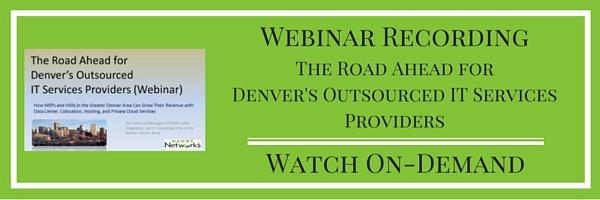The idea of downtime strikes fear in the hearts of Managed Service Providers (MSPs) and Value
Added Resellers (VARs) across the globe.
Downtime is a term used in the technology world to refer to the time a system/server is offline or unavailable. Downtime can spring from natural disasters, human error, hardware failure, software failure, overloads, and many other causes.
These technical errors can negatively affect a small-to-medium businesses’ revenue, reputation, and future growth opportunities—among other things.
Implementing a disaster recovery solution will help your business prepare for these unexpected occurrences and bring you back up to speed in the shortest time possible.
Disaster Recovery Solutions
A regular backup solution is a simple software designed to salvage and restore data in case of downtime.
A disaster recovery solution -- otherwise known as DR or Backup Disaster Recovery (BDR) -- not only salvages your business’ data but also strategizes a plan to ensure your business spends as little time as possible offline.
As Handy Network Systems Engineer Jeff Shotnik puts it, “Those backups are going to hold your data, but they’re not going to be able to get your systems online very quickly.”
So why is speed important?
“Symantec released an SMB disaster preparedness survey in 2011 that revealed small businesses lose an average of $3,000 per day from down systems,” says Matt Sudowski, Key Accounts Manager at Handy Networks. “When you get to the medium-sized businesses, they’re losing about $23,000 a day.”
This statistic has only since increased.
When you have a system that is constantly processing transactions and generating revenue, the effects can be devastating. Without DR in place, you have no choice but to wait until the system is fixed, a process that may be time-consuming as well as costly.
Preventing SMB Revenue Destruction
Consider you are driving and experience car trouble. First, you must pull off the road to assess the situation. Next, after determining you have a flat tire, you must call a tow truck, wait for them to arrive, wait for them to service your car, and then potentially fork over a small fortune before getting back on the road. This could take hours.
Now consider you are driving in a controlled environment like Nascar and you experience car trouble. Luckily, your pit crew is on standby, waiting for you with all the right tools and expertise -- and you're back on the road in just a couple of minutes.
That is the difference between a regular backup and a DR solution.
DR solutions protect businesses against unpredictable disasters when IT infrastructure fails. Partnering with the right data center when devising a plan can make all the difference.
Implementing a DR Solution
“A DR solution needs to be more than just something you set and forget about,” says Shotnik, “You need to test it out to ensure you have the necessary process, documentation, and procedure in place so when you have a disaster, you are prepared. There’s not much sense in having a DR plan if no one knows what it is and how to execute the plan.”
A major advantage of hosting through private cloud services is they specialize in devising DR solutions, removing the need for SMBs to implement, manage, test, and execute their own DR strategy.
How does your business prepare for downtime? Do you have a disaster recovery plan in place? Let us know in the Comments below.
To learn more about creating a DR solution and how MSPs and VARs in the greater Denver area can grow their revenue with data center, colocation, hosting, and private cloud services, check out our webinar “The Road Ahead for Denver's Outsourced IT Services Providers.”





